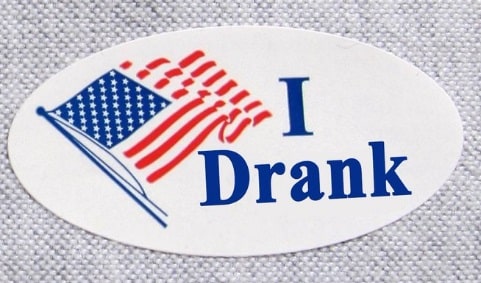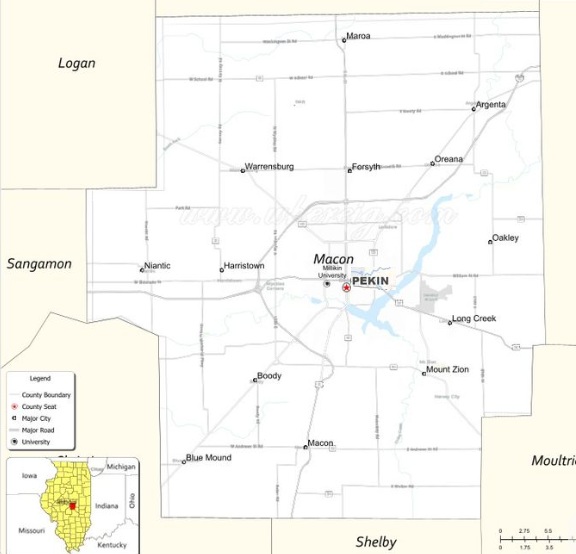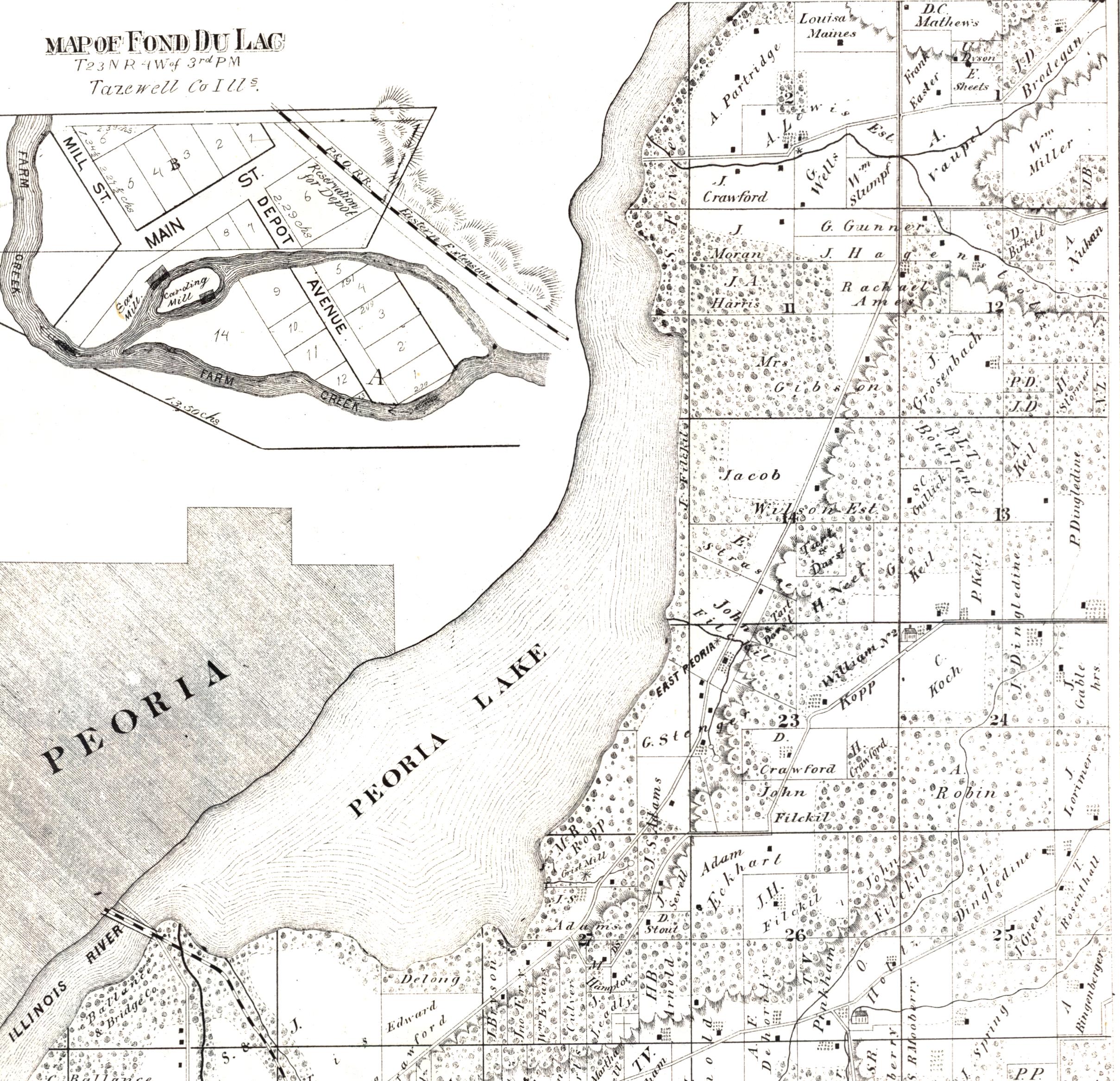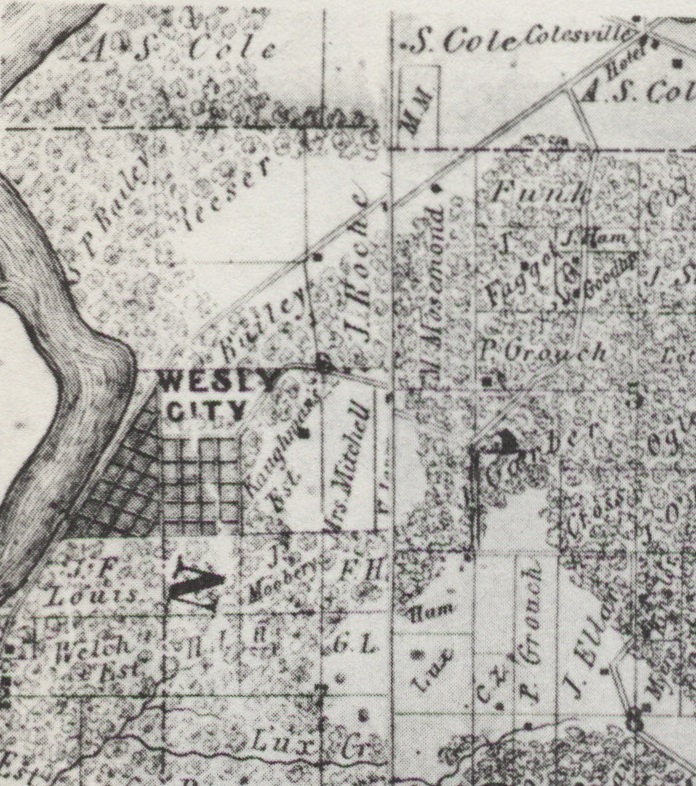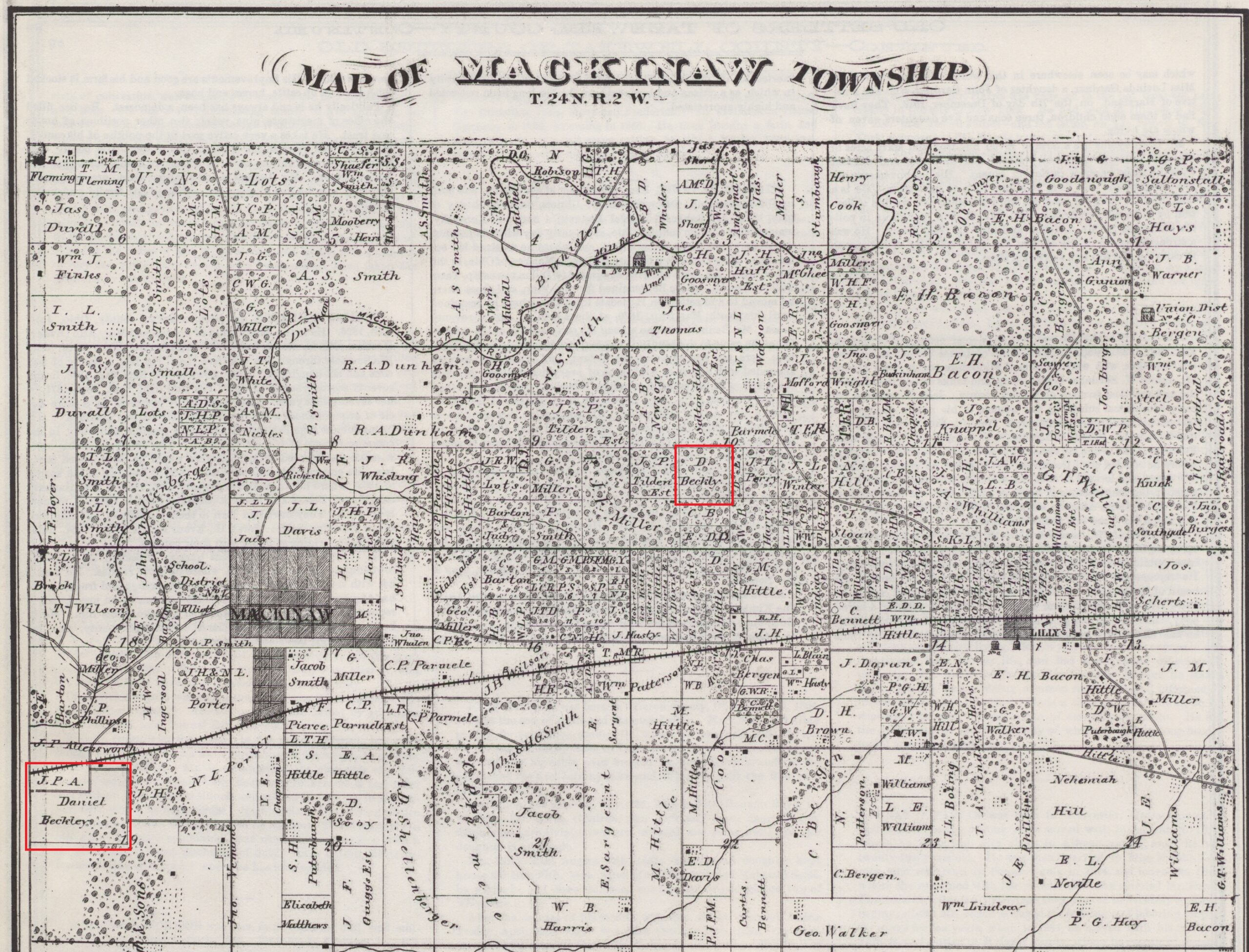This is a reprint of a “From the Local History Room” column that first appeared in July 2013 before the launch of this weblog, republished here as a part of our Illinois Bicentennial Series on early Illinois history.
We have recently recalled the story of the beginnings of permanent white settlement in Tazewell County. With the establishment of new settlements came the rudiments of governmental structures and civic life – and that means politics and formal elections.
William H. Bates wrote the first published history of Pekin, which was included in the 1870 Pekin City Directory. One of the features of Bates’ history is his compilation of Tazewell County and Pekin “firsts,” and thus on pages 7-8 of the city directory we find the story of what Bates called Tazewell County’s first election. (It would be more accurate to say that it was the first election to be held in what would later become Tazewell County.)
Bates wrote, “The first election was held at the house of Isaac Dillon (sic) on the first Monday in August, 1826, this being, at that time, a part of Peoria county. The election was for Governor and other officers. We are not informed who received a majority of the votes nor the number polled, but the day was a gala one and of sufficient importance to be commemorated by a banquet. When the voting was concluded Jesse Dillon went to a neighboring cornfield and procuring an arm-full of roasting-ears, they were boiled, together with a ham, in a fifteen gallon iron kettle, and then served to the assembled crowd of election officers and yeomanry, constituting an out-door feast worthy of the occasion and heartily and thankfully partaken of by the people.”
The 1887 Pekin City Directory, pp.11-12, repeats that account word-for-word, but adds at the end, “Nathan Dillon was elected Commissioner on this occasion.”
The story of Nathan Dillon, traditionally known as the first white settler in Tazewell County, was told in a recent Local History Room column, including extensive excerpts from Dillon’s own account of his arrival that had been quoted in Charles C. Chapman’s 1879 “History of Tazewell County.”
In addition to the story of his pioneer adventures, Dillon also wrote an account of the beginnings of civic institutions and elections in Tazewell County, and Chapman also incorporated that into his county history, on pages 711-712.
Dillon’s recollections begin with his tale of the election at Springfield in August 1822. According to Dillon, whiskey (that is, the excessive consumption of whiskey) was the fuel that powered the engine of state and local elections in those days, as politicians tried to win elections by getting the voters drunk out of their minds. (Perhaps not too different than elections today?)
Dillon said that the candidates, Kinney, Parkinson and Edwards “had a long bench ranged along side of the court-hose, on which they set their liquors. The polls were held in the interior. We all got plenty to drink . . . and a general frolic occurred; but what has surprised me as I have reflected upon these early days, we had no fighting. The great evil was, that every candidate had to fill his portmanteau with whisky, and go around and see and treat every voter and his wife and family with the poisonous stuff, or stand a chance of being defeated. . . .
“In the winter of 1823, I emigrated to what is now called Dillon Settlement, in this county, 10 miles from Pekin, and 17 miles from Peoria, where I spent the season in quietude; my nearest neighbor living in Peoria, except one by the name of Avery, who had raised his cabin at Funk’s Fill. But things did not remain in this condition long; for during the same winter the Legislature made a new county, with Peoria for the county-seat, embracing all the country north of Sangamon county. Phelps, Stephen French and myself were appointed Justices of the Pace, for the new county, which extended east as far as Bloomington and north and west to the State line. We sent our summonses to Chicago and Galena, and they were promptly returned by our constables.
“March, 1824, we held an election at Avery’s, Wm. Holland, Joseph Smith and myself were elected County Commissioners. The whole county was embraced in one election district. The number of votes polled was 20; had some whisky on the occasion, but it was well tempered, having been imported a long way by water; and we did not succeed in getting on as great a spree as we did at Springfield.”
Dillon’s account ends at that point. Chapman then tells of the August 1826 election – but Chapman’s account is almost a verbatim transcription of Bates’ story from the 1870 Pekin City Directory, even though Chapman didn’t using quotation marks. The only real differences between Bates and Chapman are that Chapman corrects Bates’ mistaken reference to “Isaac” Dillon (which was an error for “Nathan” Dillon), and also adds to Bates’ statement about the feast “thankfully partaken of by the people.”
To that, Chapman added the tongue-in-cheek comment, “nor do we know that whisky was served, yet we cannot say it was not.”


